Владимира Дмитриевича Аракина одного из замечательных лингвистов России предисловие настоящая книга
 Скачать 3.02 Mb. Скачать 3.02 Mb.
|
TOPIC: EDUCATIONLibraries full of books have been written on the education system in Britain, but recently it has been changing considerably. Compulsory education begins at 5, and children attend primary school until they are 11. Normally the primary school is divided into Infants (5—7) and Juniors (7—11). At the age of 11 most children go to a comprehensive school where they stay until they are 16. In the past children went to different types of secondary schools, but in most parts of the country everybody now goes to a comprehensive. Some parents, who do not want their children to go to a comprehensive pay to send them to a private school. The most expensive and prestigious private schools are actually called public schools. At the age of 16 people take their examinations. Most take General Certificate of Education (G.С.E.). Ordinary Levels — normally called just 'O' Levels. People take 'O' Levels in as many subjects as they want to; some take one or two, others take as many as nine or ten. If you get good 'O' Level results, you can stay on at school until you are 18, in the Sixth Form. Here you prepare for Advanced Level Exams ('A' Levels). Again, you take as many of these as you want to, but most people take two or three. In case you pass your exams well you have a chance of going on to university though this is not automatic. The number of people who study there is strictly controlled. Other types of further education are offered at polytechnics and colleges of higher education. Polytechnics offer the chance to study subjects in a more practical way, and many colleges of higher education specialize in teacher training.44 (See: Johnson K. and Morrow K. Approaches. Cambridge, 1979) TEXT A. HIGHER EDUCATION AND TEACHER TRAINING IN GREAT BRITAIN Nowadays teacher training in Great Britain is realized at universities, polytechnics and colleges of higher education.45 Students working for their first degree at university are called undergraduates. When they take their degree we say that they graduate and then they are called graduates. If they continue studying at university after they have graduated, they are called post-graduates. In general, the first degree of Bachelor is given to students who pass examinations at the end of three or four years of study. Further study or research is required at the mode-n universities for the first post-graduate degree of Master, and at all British universities for that of Doctor. In Britain full-time university students (students who spend all their time studying and have no other employment), have three terms of about ten weeks in each year.46 University teaching combines lectures given by professors, readers or lecturers,47 practical classes (in scientific subjects) and small group teaching in seminars or tutorials. The course of study for intending teachers is based upon compulsory and optional subjects. The Programme usually consists of three core components: School-based experience, Subject studies and Education studies.48 Theory of Education is one of the main subjects. At the end of the first or second year students are to make their choice as to the age-range of children they wish to prepare to teach. Junior students go into schools for one day each week, watching experienced teachers at work. They take part in the life of the school, help with games, societies or play productions. 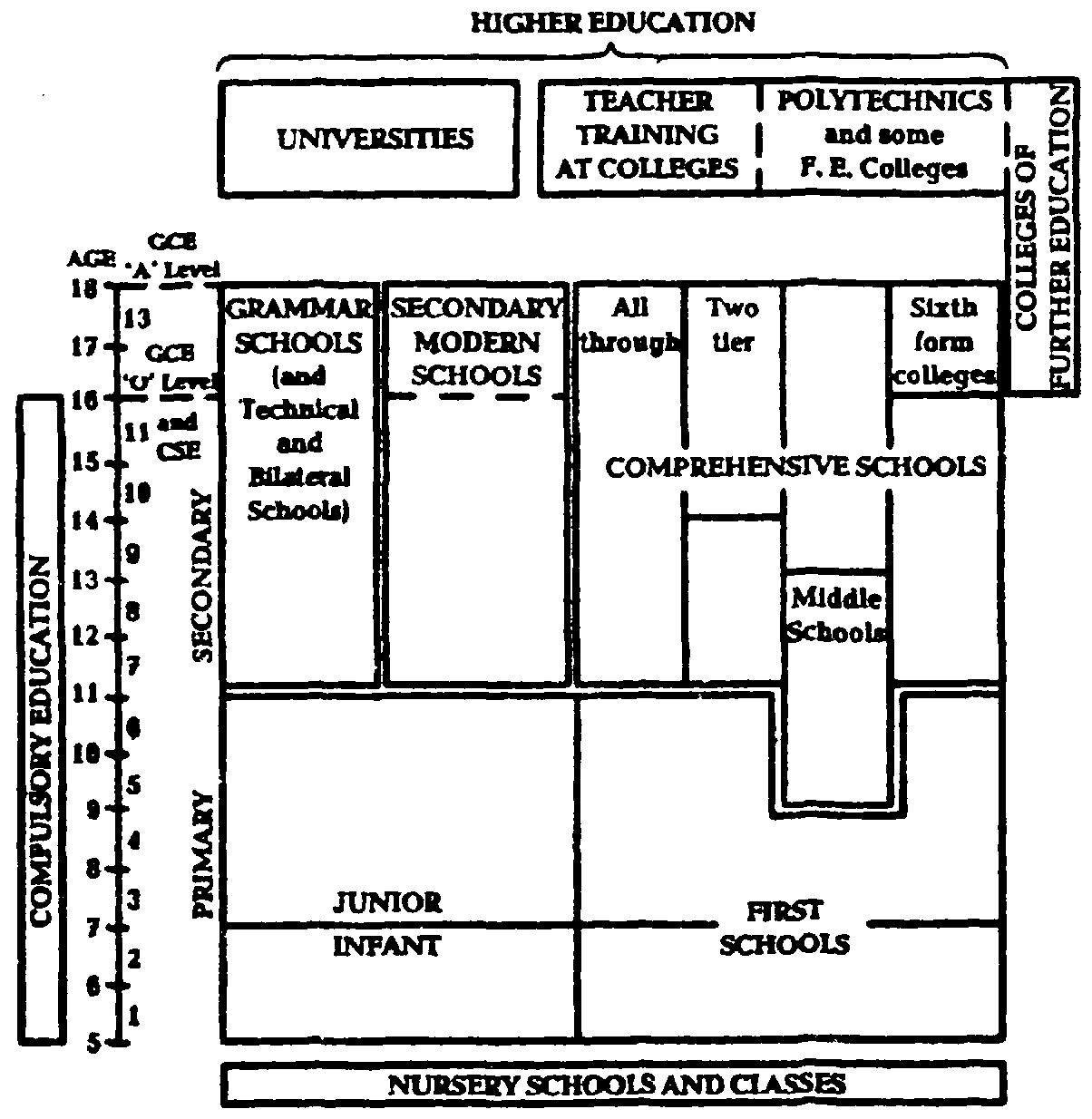 Senior students spend fifteen weeks on teaching practice. They learn the use of different educational aids, audio-visual facilities, observe lessons and take an active part in discussing them with a supervisor (tutor) on school practice. Examinations are held at the end of each term. Final examinations (or finals) are taken at the end of the course. (See: Tibbits E. L. Exercises in Reading Comprehension. Longman, 1974) TEXT B. DIALOGUE A n n : Hullo, Steve. Have you got a minute? S t e v e : Sure, yes. What can I do for you? A.: I've read a number of books on the British system of higher education but I can't make head or tail of it. S.: Mm... no wonder. What's the problem? A.: Quite a lot of problems. What I want to discuss is the difference between a university and a college. S.: It's like this, you see... The programme is different. At a university it is much wider. Great attention is paid to scientific subjects. A: It sounds as though most people prefer a university. S.: Well... that rather depends. A.: Speaking about universities I'm not quite clear about tutorials there. What is a tutorial exactly? S.: Oh, it's when students discuss topics with a tutor in very small groups — usually there are not more than three or four students and sometimes only one. A.: I see... And coming back to colleges... I'm still not terribly sure what a residential college is. S.: Erm... It's a college with a hall of residence49 on the same grounds as the principal building. In fact all the students live in hall. A: Really? and what about the teaching staff? S.: Actually the majority of the teaching staff live there too. But there are also quite a lot of non-residential colleges. A: And you studied at university? S.: Yes... A.: I'd like to find myself in that university. What was it like? S.: Well... a big grey building surrounded by trees. A: Beautiful? S.: Nothing very remarkable. Of course there were lecture halls, classrooms and a number of laboratories. A: Any facilities for sport and P.E.50 S.: Let me see... Yes... A gymnasium with changing rooms and showers, a tennis court... What else... A playing field for netball and football... A.: I believe students spend a lot of time together, don't they? S.: Definitely. We had students' societies and clubs. A.: Am I right to believe that they are for those interested in drama and music? S.: Quite... and also politics, modern languages, literature, science and athletics. A: Ah... that's worth knowing. S.: And what I'd like to add is that students themselves organize all those clubs and societies. There is usually a Students' Council or Union. A.: Well Steve. Thanks very much. You've been most helpful. TEXT С. HOW TO GET A DEGREE J.: Well, Arnold, I remember you said once you were a B. A. Perhaps you could tell me how quickly you got those letters after your name? A.: At university I studied history. It was a 3-year course. And after that I got a B. A degree. J.: B.A. stands for Bachelor of Arts degree, doesn't it? A.: Yes, which reminds me of my neighbour whose son had just got his B. A. A friend asked very seriously: "I suppose your son will try to get an M. A. or Ph. D."51 next to which my neighbour answered: "Not at all, now he is trying to get a J-O-B." A: Ah... he meant a job! That's a good joke! (See: English 903, Book 6. Lnd., 1978) ESSENTIAL VOCABULARY (II) Words and Word Combinations A. education system scientific subjects compulsory education an intending teacher primary school optional secondary school core component (core) comprehensive school school (teaching) practice public school School-based experience further education Subject studies polytechnic Education studies college of higher education (Theory of) Education to specialize in main subject teacher training age-range degree junior students undergraduate senior students graduate play production post-graduate educational aids full-time student audio-visual facilities part-time student visual aids reader to observe a lesson lecturer supervisor (tutor) practical classes to hold examinations final examinations (finals) B. tutorial changing room residential college students' society non-residential college Students' Council (Union) hall of residence С. а B.A., B.Ed., B.Sc, B.S.E., to live in hall B.S.M. degree (Bachelor of principal building (the Arts, Education, Science, Senate) Engineering, Medicine etc.) teaching staff M.A., M.Ed (Master of Physical Education (P.E.) Arts, Education, etc.) gymnasium (gym) PhD. (Doctor of Philosophy) EXERCISES I. Study Text A and write English equivalents of the following words and phrases. Transcribe them:педагогическое образование (обучение учителей), политехнический институт, колледж высшего образования, степень, выпускник, аспирант, бакалавр, дальнейшее обучение, исследовательская работа, магистр, студент дневного отделения, студент вечернего отделения, лектор (2 words), практические занятия, будущий учитель, быть основанным на чём-n., обязательный, факультативный, практика в школе, изучение основного предмета, комплекс предметов педагогического цикла, педагогика, профилирующая дисциплина, возрастная группа, студенты младших курсов, постановка пьесы, студенты старших курсов, учебные пособия, аудио-визуальные средства, посещать уроки, руководитель по педпрактике (2 words), проводить экзамены, выпускные экзамены. II. Write 15 questions on Text A, using new words and expressions in each question. Ask your comrades to reply them. Summarize what you have learned about the British system of higher education.III. Study Texts В and С and write English equivalents of the following words and phrases:система высшего образования, практические занятия, колледж с общежитием, колледж без общежития, общежитие (студенческое), территория колледжа (университета), жить в общежитии (о студентах), педагогический состав, лекционный зал, гимнастический зал, раздевалка, студенческое общество, студенческий совет, бакалавр гуманитарных наук, магистр гуманитарных наук, доктор философских наук. IV. Ask your fellow-students:1. About the difference between a university, polytechnic and college of higher education. 2. Why it is preferable to study at university. 3. What subjects the Programme of a university is based upon. 4. What you know about tutorials. 5. About the difference between a residential and a non-residential college (university). 6. Who lives in hall. 7. What rooms can be found in a university building. 8. What sport facilities there are at a university. 9. What clubs and societies are popular in British colleges and universities. 10. Who runs those clubs and societies. 11. What a B. A. is. 12. How quickly one can get those letters before his name. 13. What a M. A. is. 14. Which degree is higher: M. A. or Ph. D.? 15. If it is easy for a Bachelor of Arts to find a job. V. Retell Text В in indirect speech using new words and word combinations.VI. Fill in prepositions. Ask the others to give their responses to the given sentences so as to make up micro-dialogues:1.... Great Britain the course... study... intending teachers is based ... compulsory and optional subjects. 2. The Programme usually consists ... three core components. Do you remember what they are? 3. Are you going to specialize ... Education? 4. It is important... a student to learn the use ... different visual aids ... his block-teaching practice. 5. My school practice began when I was ... the first year. 6.... our department examinations are held ... the end ... each term; ... each examination students are given several days which they spend ... revising the material. 7. The English club organized ... the students is concerned .., extra-curricular activities. 8. Do you enjoy your lectures ... Theory ... Education? Are they supplemented... seminars? VII. a) Retell Text С in indirect speech; b) act it out.VIII. Speak about the English Department at your University (usе Essential Vocabulary on the topic).IX. Make up dialogues, using Essential Vocabulary on the topic Suggested situations:A. A Russian student and an English student are exchanging information on systems of higher education in their countries. B. Two students of the English department are discussing their college life. One of them is enthusiastic about everything, the other is a dissatisfied grumbler and finds fault with every little thing. C. A student of the English department is speaking about the programme and the course of study with a friend of his (hers). D. A strict father (mother) is demanding an explanation from a son (daughter) after a failure in a college exam. The son is giving all kinds of lame excuses speaking about "overcrowded syllabus", injustice of professors and bad luck in general. X. a) Bead and translate into Russian:Oxford So this is Oxford. As soon as we emerge into the clean, broad streets, there are signs enough that this is the ancient seat of English learning. Gowns and mortar boards.52 Young undergraduates in loose black thigh-length gowns. A graduate's gown is generally of knee length and for ceremonial occasions at least, has a hood lined in silk of the colour prescribed by the wearer's faculty. Oxford's main railway station is some half a mile to the west of the area in which are clustered most of the colleges: Queen's College and University College, Magdalen College and quite a number of others. All these together make up the University of Oxford. The central University, in general, arranges lectures for the whole body of students in a particular subject and holds examinations and grants degrees; an individual college provides for residence and tutorials. Great emphasis is laid at Oxford and Cambridge on what are called "tutorials", in which a Don53 gives personal instruction in his study at least once a week to students numbering not more than four at a sitting. For a lover of old architecture, Oxford has much to offer. Many of the colleges present a lovely picture of ancient pearl-grey walls, noble towers, picturesque gothic archways. All have grass lawns of velvet smoothness which must be seen to be believed, and many have, in summer, most magnificent displays of flowers. (After "The British Scene" by George Bidwell) b) Argue the pros and cons of: 1. Tutorial system. 2. Students' uniform. 3. Residential colleges.XI. Describe the pictures on p. 183:XII. Try your hand at teaching:A. Preparation. Get ready for a talk on one of the following topics: 1. Higher education in Russia. 2. Higher education in Great Britain. 3. Oxford University. 4. Cambridge University. 5. Teacher training in Great Britain and in Russia. B. Work in Class. Listen to the students' talk and say a few words about the construction of each talk: its beginning, development, conclusion, and the general balance of these parts. Speak on what you think may surprise a Russian student at an English University (Oxford, Cambridge): a) programme, b) teaching methods, c) students' extra-curricular activities. Prompts: I think (suppose, guess, believe, dare say)...; Well, my opinion is that...; My view is that...; True, but...; You may be right... but all the same...; I wouldn't say that; But on the other hand. XIII. Read the text. Comment on its content:Students in Tents Three small tents — two blue and one khaki — are pitched among trees on a hill above Sussex University campus. This weekend they are 'home' to three students who cannot find a bed in the neighbouring town of Brighton. They are an apt symbol of an accommodation crisis that is affecting thousands of students throughout the country. Tonight 80 other Sussex students will bed down on mattresses on the floor of the university senate chamber. It will be the sixth — and probably final — night of a'protest occupation! In every major city there are students on camp beds in nooks and crannies and others 'crashing' on the floors of friends' flats. The National Union of Students describes it as the worst ever student accommodation crisis! The indications are that it is a foretaste of a massive problem. Unless something radical is done, the concept of a student having the right to go away to university may soon be dead. (See: Ttofi C., Creed T. S. English in Mind. Lnd., 1982) XIV. Speak on:1. Your intentions as to your teaching career. 2. What you are going to do to become a highly-qualified specialist. XV. Role-playing.Work in two groups, one playing the university lecturers, the other presenting students. Both groups are discussing one and the same exam. Compare their versions and make your conclusion as to the difference in approach:Exam: English Literature. Results: Dave Robertson — Sat Charles Hope — Poor Duncan Holmes — Good Dorothy Baird — Very Good Jenny Richards — Good XVI. Compose a short story to which the pictures on pp. 187-189 might serve as an illustration. Use prompt words and phrases listed betow:physicist; theory of relativity; treading on air; full of sweet reminiscences; cast a glance; a sudden shock; come to realize; a guilty conscience; first traces of fatigue; tired-out; with a wet towel round his head; in frustration; a dazed look; a tub of water; scattered all over; peeping inside; puzzled; strange visions; welcome cheerfully; arm-in-arm; a cane; in a frenzy of enthusiasm; leaning on; lunatic asylum. 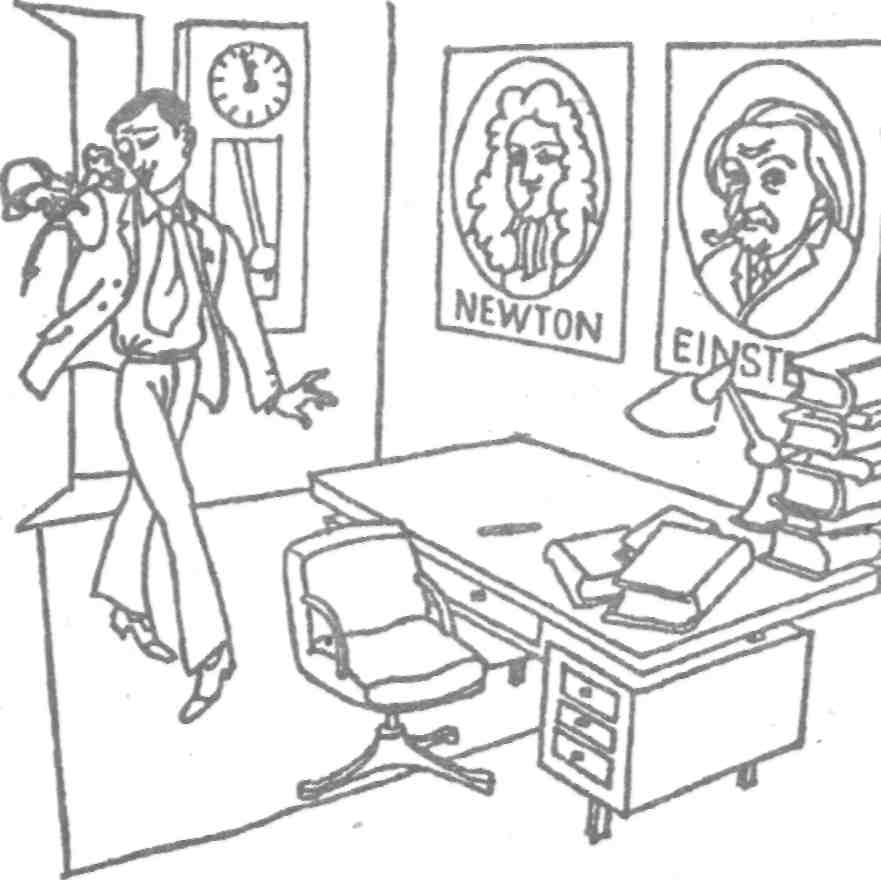 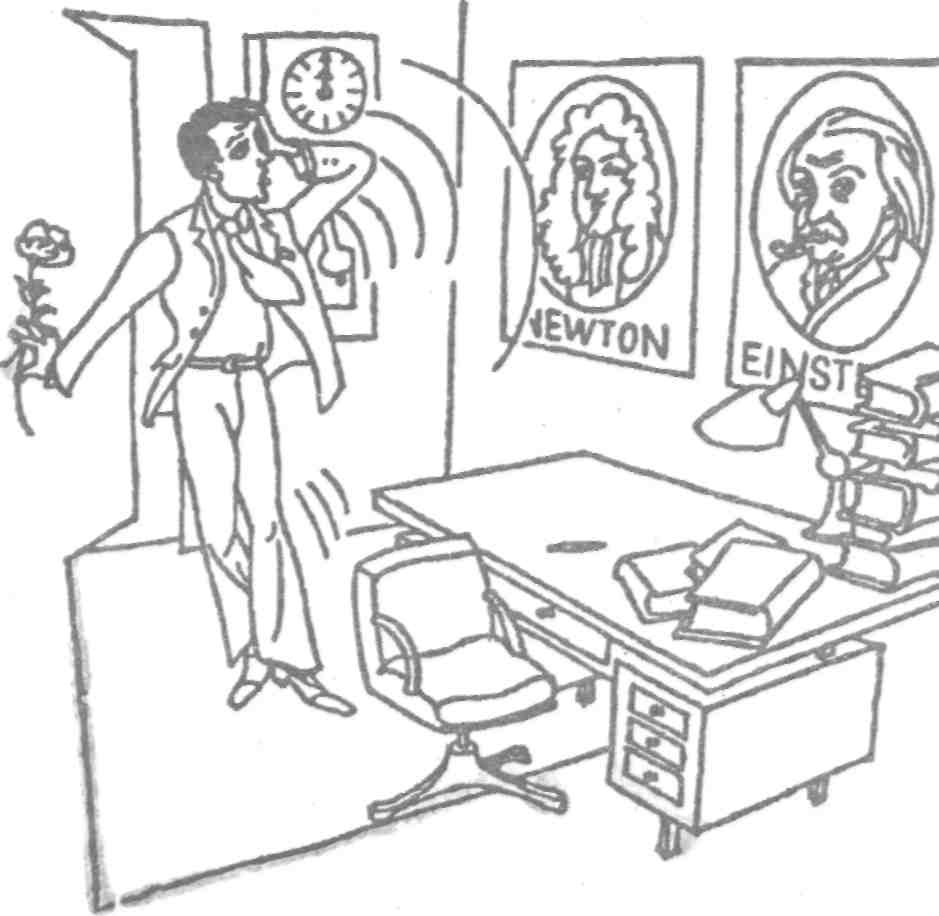 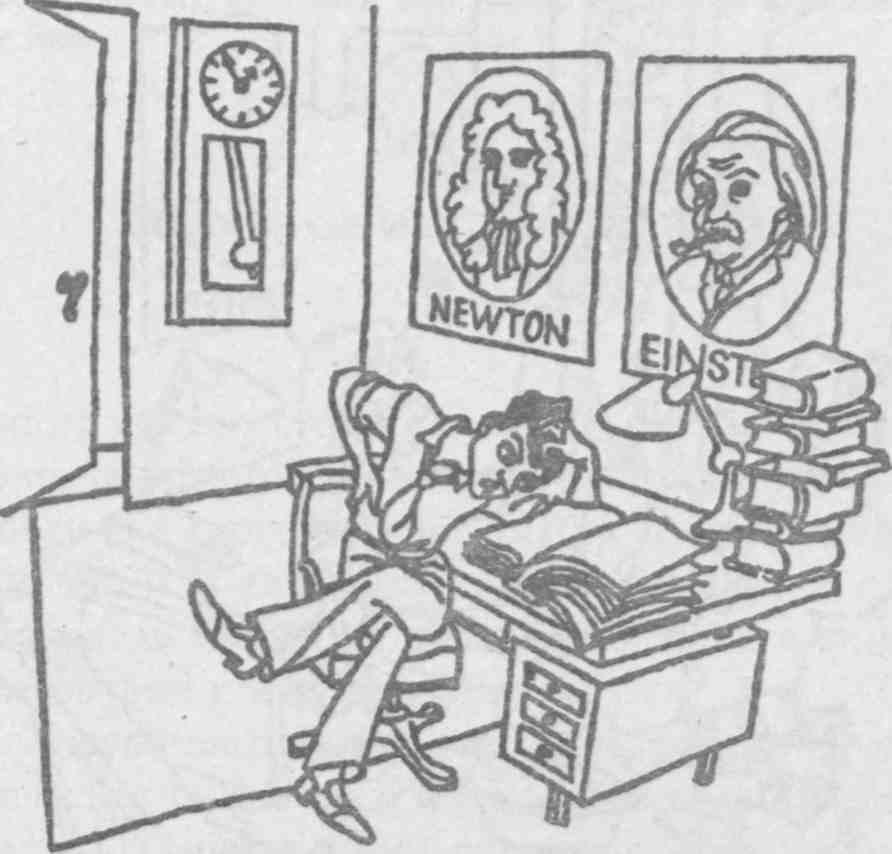 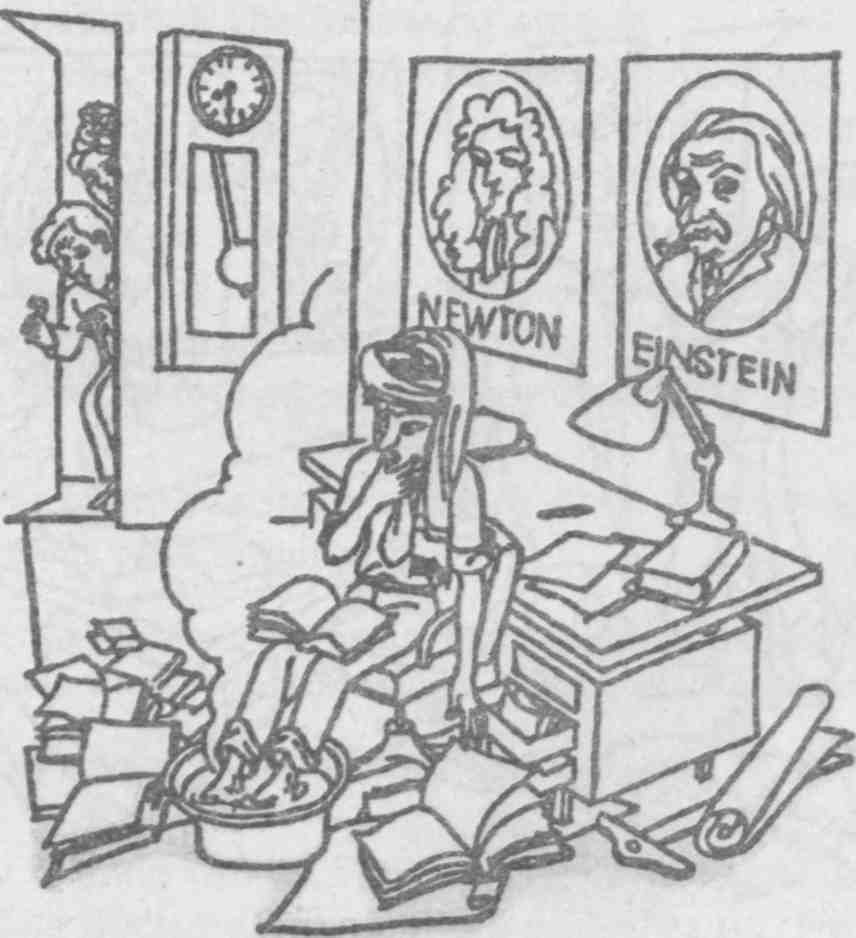 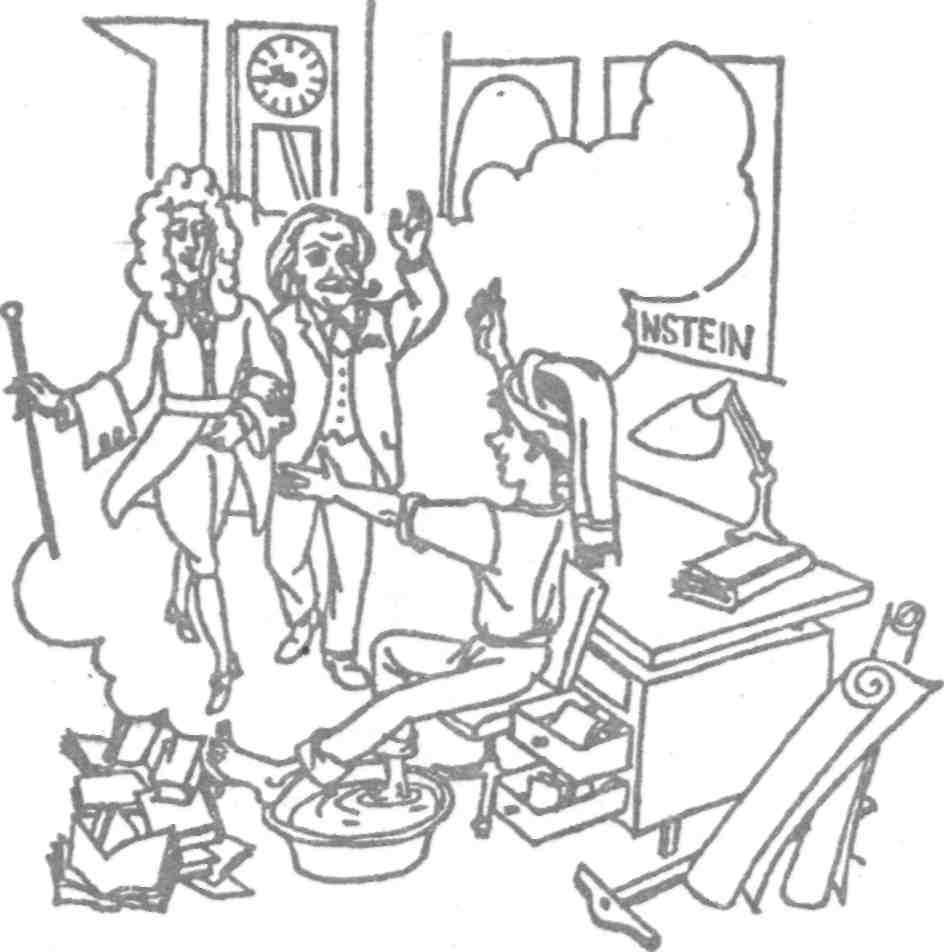 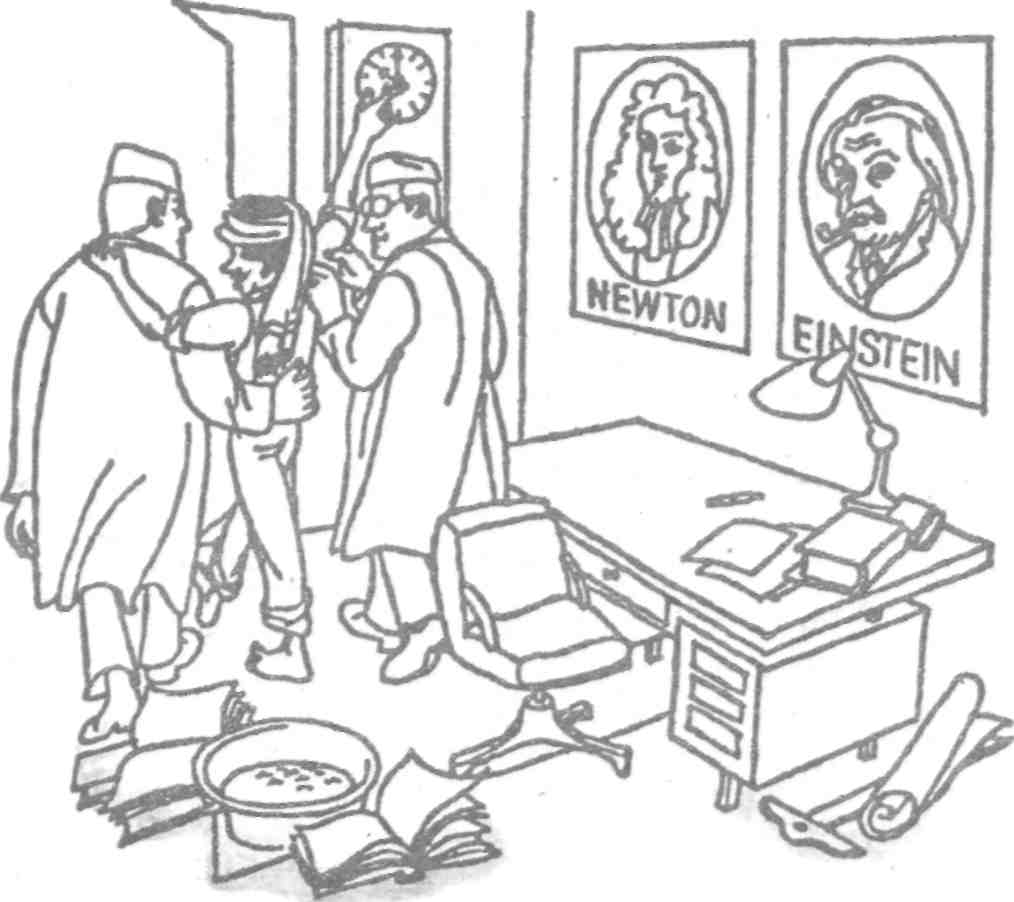 XVII. Film "Mr. Brown's Holiday". Film segment 5 "Is it Good to be a Student?" (Chrichester). a) Watch and listen, b) Do the exercises from the guide to the film.STUDIES OF WRITTEN ENGLISH V A kind of writing technique that helps to achieve good results is summarizing the contents of written works. Summary is a representation of the contents of complete works in brief. It is expected to be about a sixth or a tenth of the original in length. It is easier to make a summary of stories, novels and plays which have a plot. Plot is a systematic arrangement of events by means of which the writer builds up a meaningful situation and shows the characters. Usually a plot consists of a good beginning, a middle, and an end. In order to make a good clear summary of a story you have to go through the following stages: 1. Read the story carefully so as to understand its plot. 2. Make a list of all the points you find important. These notes should be very brief, very much like the topic plan (see the sample in Unit Four). 3. Using the list of points, write a rough draft of the summary. You may paraphrase and modify topic sentences. This will help you to reproduce the contents of the story in your own words. 4. After having written a rough draft shorten it and write a -fair copy of your summary. Note: Take care not to change the meaning of the original or add to it. Your summary may follow the outline of the story in brief. Here is a sample summary of "A Day's Wait" (see Unit Two). A boy of nine fell ill. He was running a high temperature (102°F). The doctor diagnosed the illness as flu. He said there was nothing to worry about if the fever did not go above one hundred and four degrees. The boy lay still in the bed. He seemed detached and was looking very strangely at the foot of the bed. When the father took his temperature again the boy asked him about the time he was going to die. He argued with his father about the temperature because when being at school in France he learned from the boys that you can't live with the temperature of forty-four degrees. The father reassured him explaining the difference between the Fahrenheit and Centigrade thermometers. The boy relaxed after "a day's wait", though the next day he was still suffering from a nervous breakdown. Assignments: 1. Write a summary of the story "How We Kept Mother's Day". (See Unit Four.) 2. Try to make a summary of Judy's letters. (Don't forget to make a list of the most important points before writing a rough draft.) 3. Write a summary of the dialogue between Ann and Steve. (See Text B.) Think of the best topic sentences introducing or/and completing your summary. LABORATORY EXERCISES (II) 1. Listen to Texts A and B, mark the stresses and tunes. Repeat them following the model 2. Listen to Text С Mark the stresses and tunes. Repeat it following the model. 3. Write a spelling-translation test. Check it with the key. 4. Write a dictation. Check your spelling with a dictionary. 5. Translate the sentences and check your translation with the key (written work). 6. listen to the text "Cambridge'' or some other text on the topic "Education". Write tS questions to the text Get ready to discuss it in class. CURIOSITY QUIZ FOR EAGERS I. Test your "I. Q."54 and compare it to Judy's "abyss of ignorance". Say what you know about: 1. Maurice Maeterlinck. 2. Micheleangelo. 3. "David Copperfield" and the author of the book. 4. "Ivanhoe" and the author of the book. 5. "Jane Eyre" and the author of the book. 6. "Robinson Crusoe" and the author of the book. 7. "Alice in Wonderland". 8. Henry the Eighth. 9. Shelley. 10. George Eliot. 11. Mona Lisa. 12. Sherlock Holmes. II. Give the names of humorists: a) you appreciate most of all; b) of British or American origin; c) of world reputation. |
